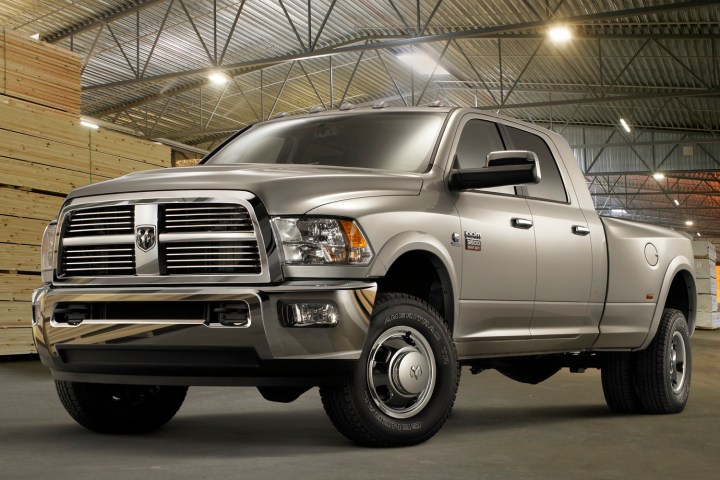
Fiat Chrysler Automobiles (FCA) and engine supplier Cummins are now being sued over alleged attempts to hide excess emissions in Dodge and Ram heavy-duty pickup trucks, according to Bloomberg. Plaintiffs in the class-action suit are being represented by Seattle law firm Hagens Berman Sobol Shapiro, which was involved with the Volkswagen 2.0-liter diesel settlement, and also filed a suit against General Motors alleging the Detroit automaker installed illegal “defeat device” software on Chevrolet Cruze Diesel models.
The suit, which includes 500,000 owners, alleges that Chrysler and Cummins concealed the true nitrogen-oxide emissions of certain pickup trucks produced between 2007 and 2012. The pollutants were supposed to be captured and broken down in a process called regeneration in the trucks’ NOx Absorption Catalyst (NAC), an emissions-control system that has since been superseded by Selective Catalytic Reduction (SCR).
The lawsuit claims the affected trucks actually let a significant amount of pollutants escape, sometimes nearly doubling emissions, increasing fuel consumption by up to 4 percent, and wearing out catalytic converters. All trucks discussed in the suit were built before Chrysler merged with Fiat to create FCA, and before the company began using the more modern SCR system to reduce emissions. SCR uses urea fluid to remove harmful emissions form the exhaust, and is used on most diesel vehicles currently sold in the U.S.
In a statement, FCA said it is reviewing the complaint, but does not believe it is meritorious. The carmaker said it would “vigorously contest” it. The United States Department of Justice and Environmental Protection Agency (EPA) haven’t taken any action against FCA or Cummins over the alleged violations, Bloomberg noted.
The companies’ motivation to violate emissions standards dates back to a 2001 change in the emissions rules, according to the lawsuit. The EPA set stricter standards for 2010, but Chrysler and Cummins decided to try to meet them by 2007. When they were unable to do that, the two companies conspired to “rig” diesel engines to appear to produce lower emissions instead, the suit claims.


